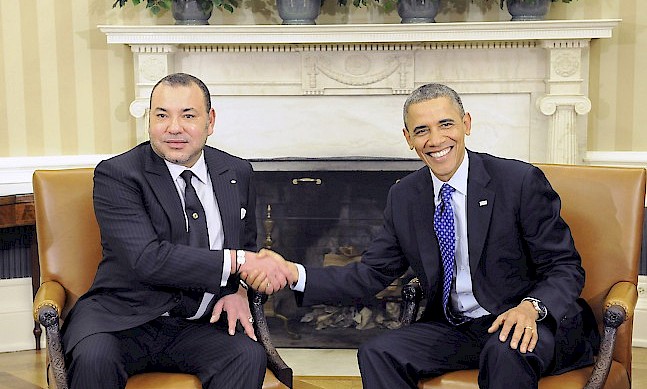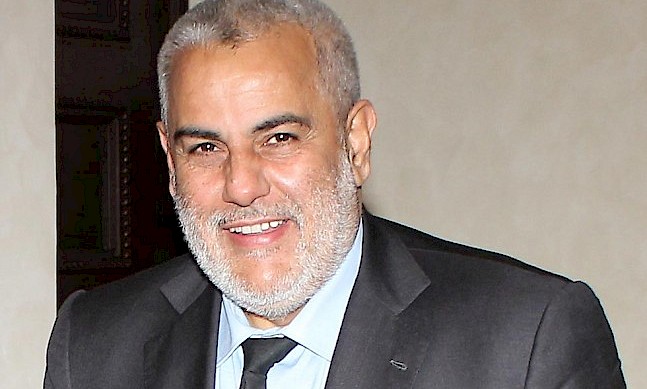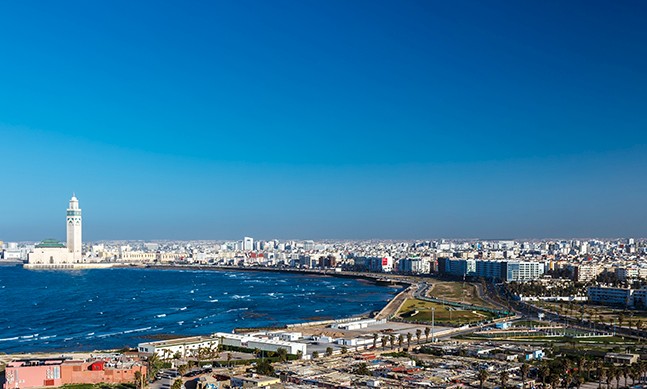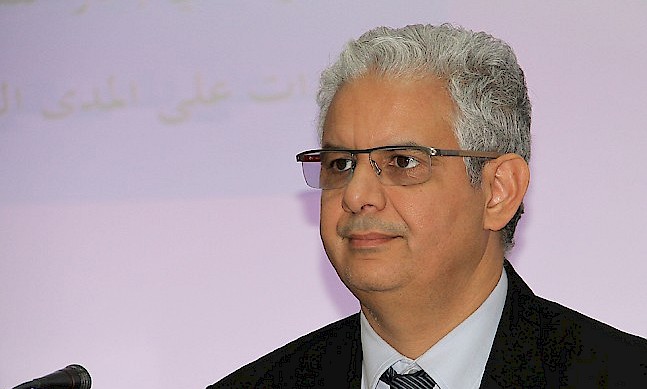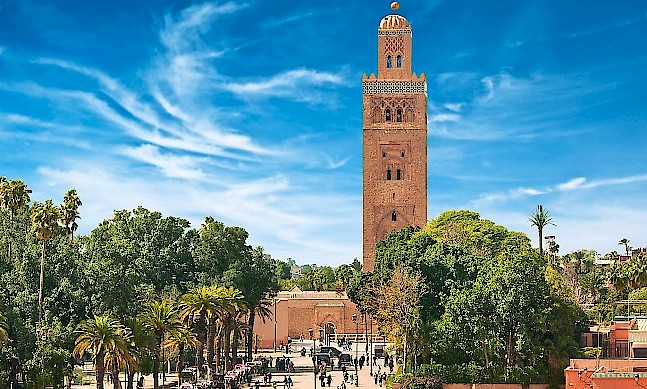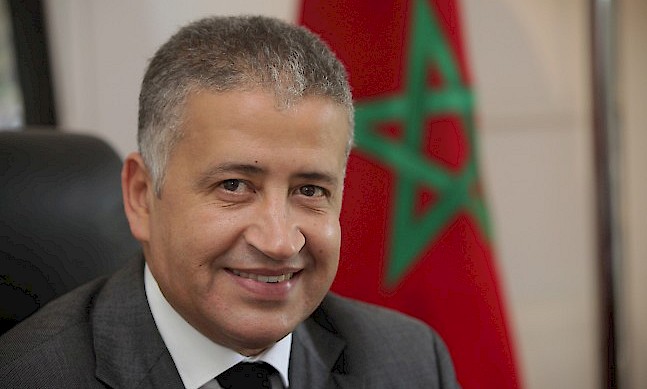Following a long career in finance, Dwight L. Bush, Sr became U.S. ambassador to Morocco in March 2014. He met with The Report Company to discuss his commitment to deepening relations between the two countries, and outlined where he sees the greatest opportunities for further growth and cooperation
The Report Company: What sets Morocco apart politically from its neighbors in North Africa, and what would you identify as the factors leading to its stability?
Dwight L. Bush, Sr: I am very optimistic about Morocco and its prospects from several perspectives. One is that we have had a very long-standing relationship with Morocco. Morocco was the first country to recognize the United States in 1777, and in 1821 the Sultan gave us a building in Tangier which is the oldest diplomatic building outside of the United States. We have had a very close working relationship with the Moroccan people and the Moroccan leadership since that time.
I would put the things that I find compelling about Morocco right now in three buckets. One is from a commercial perspective. Morocco is an environment which is open for investment and which is encouraging companies to invest here. The United States and Morocco have a free trade agreement (FTA) in effect. This is the only free trade agreement that we have in effect on the continent of Africa. We’ve had a very successful Millennium Challenge Cooperation Compact which was used to encourage investment by Moroccans in infrastructure to help the country to grow. We find that the leadership of the country is very oriented towards investment. As a person from the investment sector, that’s one of the things that I think about first.
The second is security. I often describe Morocco as the best house in a tough neighborhood. It’s very compelling to see a country that is safe and secure. I think that that is principally because you have a moderate, progressive Islamic state headed by King Mohammed VI who has a vision of his country, his people and their participation both internally and on the continent to try to help other countries to come along as well.
From a political perspective, Morocco has been ahead of many others in the region. The king announced plans for a new constitution in 2011, and since that time the government has proceeded to put in place the sort of legislative infrastructure that you need for growth. His majesty is advocating for the inclusion of women in leadership, and some of the biggest stars in Moroccan politics today are women, so that is very compelling to me. When I take those things: the vision, the security and the commercial orientation, it makes me optimistic about the future for Morocco.
TRC: How important is Morocco to U.S. foreign policy in North Africa?
DB: We work very closely and have done so for a long time with Moroccans on security issues. They are our partners in countering violent extremism and they are our partners in military security for the region. We have the annually scheduled African Lion exercise, which is the largest military exercise we do on the continent. We have a very close working collaboration on security and I don’t think that that is going to change.
The hope is that Morocco continues to show by example how to work effectively to move the country forward, recognizing that you have needs for security as well as liberties and freedoms. And so in addition to our commercial and investment orientation, we work with the Moroccans to expand civil society and political institutions.
TRC: What opportunities are emerging in Morocco for U.S. investors?
DB: Since the FTA came into effect, exports from the United States to Morocco have tripled while imports from Morocco have more than doubled. We take the view that the way you grow and have stability is to make sure that you have commercial growth and that you’re finding opportunities to employ people.
There are about 140 U.S. companies that have some engagement here; I spend a considerable amount of my time working with both our counterparts in the Moroccan government and with the Moroccan ambassador to the United States and other interested parties to encourage U.S. companies to come here and invest.
Many companies that may have been domiciled further east or who are thinking about positioning themselves to service this huge rapidly growing continent are thinking more and more about Morocco. From a security perspective, from a risk perspective, from a transportation perspective, from a business orientation perspective, Morocco fits the bill. Morocco has been a country of traders and investors for thousands of years in Marrakesh, Fez, Essaouira and Tangier. There is a history of commercial engagement here that needs to be leveraged.
“From a security perspective, from a risk perspective, from a transportation perspective, from a business orientation perspective, Morocco fits the bill”Tweet This
TRC: What made you choose to come to Morocco?
DB: I found many things compelling about Morocco. The road infrastructure is exceptional. You have about 97 percent electrification which is significant on this continent. You don’t experience brownouts here. That will be improved because of the significant investment that the kingdom is making in its energy sector. The infrastructure is in a good place and the country is very well positioned to service the European market and the sub-Saharan and Saharan market. We have a free trade agreement in effect. As an ambassador, you tend to move towards things that you know most and so for me it is ideal to be in a position in which I could encourage investment and best business practices and in which we could collaborate on other important things like security and risk management. If you take those things plus some of the qualitative aspects of Morocco with its history and its culture, it’s a very nice place to be.
TRC: What is your assessment of where the country is heading?
DB: I think that there are multiple opportunities. I share his majesty’s vision for Morocco being a gateway to Africa. Out of that vision you’ll see Moroccan companies, and investors from other countries, situating themselves here to serve a very broad market. There are specific attributes like the Tangiers Med port in the north, which would be a transshipment site.
When you look at the investment that the country is making in certain economic ecosystems like aerospace, automotive, textiles, tourism, agriculture and phosphates, Morocco is very well positioned to meet both the growth and consumer demand in its country and the need for energy, infrastructure, agriculture and different products and services on the continent. That is what makes me optimistic.
“My advice would be to spend some time getting to understand the Moroccan brand. Americans have a monolithic view of North Africa which is unfortunate. In Morocco, there is a rich business environment and I think it’s a great country on the right path”Tweet This
TRC: What needs to be done to enable Morocco to continue to grow and develop?
DB: By far the most significant issue is education. Education is complicated in Morocco because young people first learn the Quran, then they learn Darija, and then they go to school and often they’re taught in school in French and then they’re encouraged to learn the English language and of course Classical Arabic. That’s a lot to deal with. The education system as currently constructed doesn’t line the young people up with the opportunities that are currently evolving. There is a huge need for skilled vocational technical workers in Morocco and so we want to help Morocco to understand what some of those vocational opportunities should look like and help to find solutions for what they need. We work closely with the ministry of education through various programs to try and improve education, which is by far the biggest challenge.
TRC: How important is it for you to be visibly active in Morocco?
DB: It’s my orientation to be active. That’s just who I am. More importantly, when I first came and presented my credentials to his majesty, he said, “Do not be one of those diplomats who come here and spend all their time in Rabat and Casablanca”. And so during my first 100 days in Morocco, I travelled around 65 days. I met with businesspeople and young people. I spent time in rural and urban places. I visited small towns in the north and big towns in the middle to really get a feel for what’s going on and what’s needed. I thought it was important for me as a finance guy to do some due diligence and understand the environment in which I’m working.
Furthermore, this has been a longstanding relationship and I wanted people to understand that the brand, the U.S. brand, continues to be the brand that’s in partnership in this relationship and that we are seriously committed to Morocco.
TRC: What contribution does the embassy make to the development of Morocco and where is there scope to do more?
DB: It’s my objective to do as much as I can to make sure that this is a successful experience. We want to focus on the pillars of our relationship which are commercial, security, education and improving civil society and institutions. Those are the things that I think about every day. We are focused on those core areas and we are helping to make progress. I think we have already made progress and I’m hopeful that we will continue to make progress as we move forward.
TRC: What type of advice would you give to entrepreneurs who would like to establish themselves in Morocco?
DB: There is a lot of opportunity in Morocco, both in the industrial sector and the consumer sector. My advice would be to spend some time getting to understand the Moroccan brand. American investors and Americans in general don’t really understand or don’t distinguish the Moroccan brand from some of the other countries in the region. We have this kind of monolithic view of North Africa which is unfortunate. In Morocco, there is a rich business environment and I think it’s a great country on the right path.

